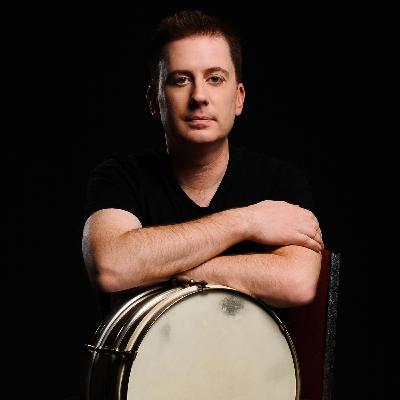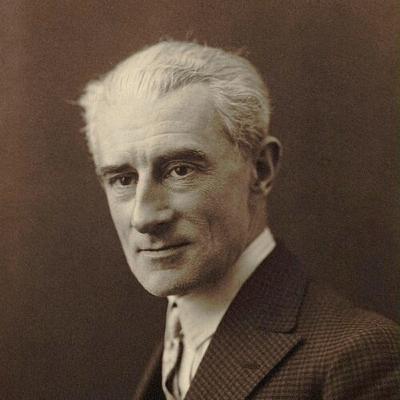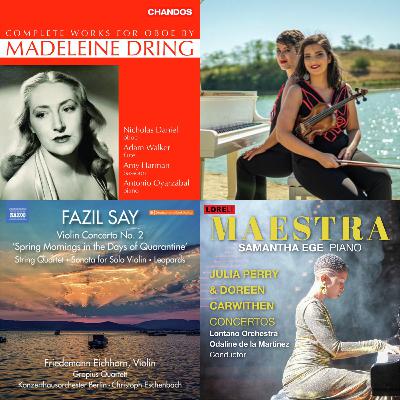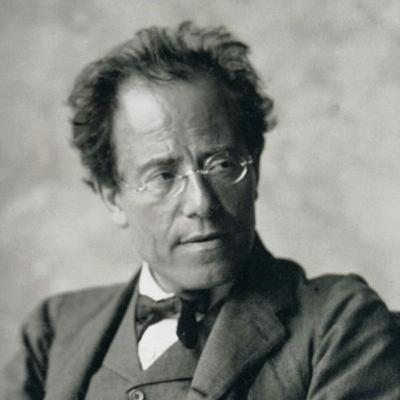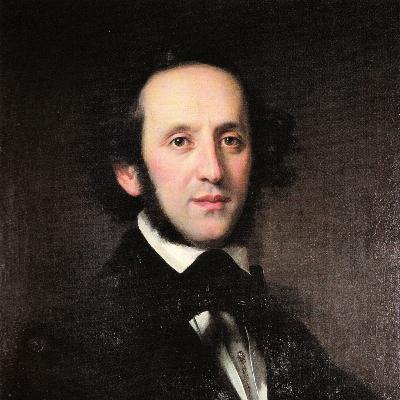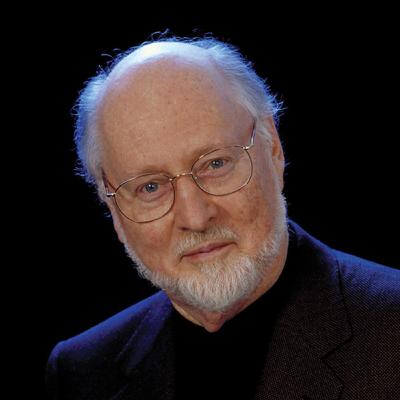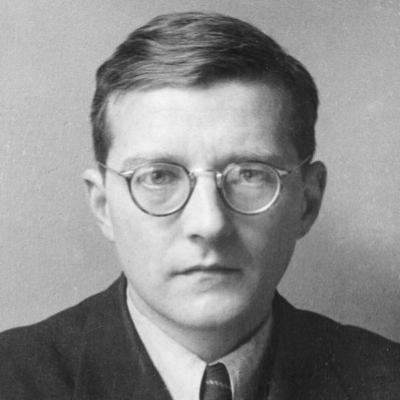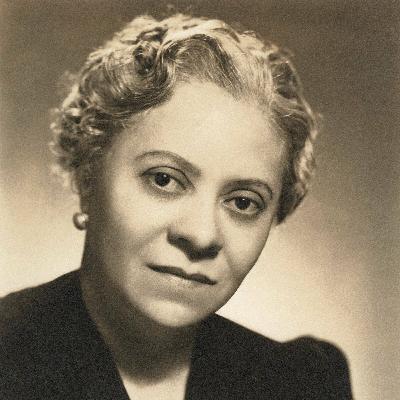Discover Classical Breakdown
Classical Breakdown

Classical Breakdown
Author: WETA Classical
Subscribed: 537Played: 8,945Subscribe
Share
© 2025 WETA Classical
Description
John Banther takes classical music fans behind the scenes with interviews, deep dives, and analysis. Episodes released bi-weekly on Tuesdays. Produced by WETA Classical in Washington, D.C.
149 Episodes
Reverse
For a limited time, we can enjoy a recent live performance of Adolphus Hailstork's An American Port of Call. Ken David-Masur conducts the Milwaukee Symphony Orchestra in this performance, and after this you can find more on the MSO YouTube page!
Death has been depicted in music to console, frighten, warn, and entertain for over 400 years. In fact, the most quoted motif about death is also the oldest, and you know it intimately whether you realize it or not! John Banther and Evan Keely take you on a deathly trip over 10 works and a bonus.
I'm excited to bring you more from Xuefei Yang with these three performances taken from her YouTube channel (where you will find plenty more performances!).
She is one of today's great living guitarists, and in this episode, she tells us all about her new album Chapeu Satie. Xuefei explains how she approaches transcribing and arranging for the guitar, why she chose to include flute and voice, and performs a work from her new album at the end, too!
Beethoven pushed the symphonic form in a new direction with this heroic work that sounds larger than the sum of its parts. John Banther and Evan Keely show you what to listen for, how it pushed boundaries in 19th-century music, the famous Napoleon dedication, and more!Support Classical Breakdown: https://weta.org/donatefmSee omnystudio.com/listener for privacy information.
Think you can play the triangle? Think again! In our biggest episode yet, we explore the big world of percussion with Chris DeChiara. Using composers from Beethoven to Ozzy Osborne, he demonstrates over a dozen instruments and shares insider secrets as to what goes on in the back row. Support Classical Breakdown: https://weta.org/donatefmSee omnystudio.com/listener for privacy information.
Who doesn't love more music? Starting this season, we'll be releasing occasional bonus episodes. We kick it off with a great performance of a suite from Ravel's ballet Daphnis and Chloe. Support Classical Breakdown: https://weta.org/donatefmSee omnystudio.com/listener for privacy information.
This composer had way more impact on the 20th century than you realize! Join us as we celebrate his life at 150 and look at how he achieved this unique sound, why he was kicked out of school twice, and enjoy a performance of his string quartet. Support Classical Breakdown: https://weta.org/donatefmSee omnystudio.com/listener for privacy information.
It's the final episode of Season 6, and per tradition, it's an episode with recommended summer listening. Thank you very much for listening, rating, and sharing the podcast as it continues to grow year after year with your help! In this episode, there 4 albums to explore, taking us on a journey to ancient cities, flirtatious oboe playing, an emotional rollercoaster, and more!Support Classical Breakdown: https://weta.org/donatefmSee omnystudio.com/listener for privacy information.
This work marks a departure from his previous symphonies, which were linked together by vocal music. But what is this? Is this Mahler working through his mortality and uncertainty, or something else? John Banther and Evan Keely show you what to listen for, how Mahler achieves his unique sound, and what it could all mean. Support Classical Breakdown: https://weta.org/donatefmSee omnystudio.com/listener for privacy information.
Join us to explore Felix Mendelssohn's life through 4 different aspects of life that separated him from nearly every other composer. John Banther and James Jacobs explore his life, what made him different, and enjoy a full performance of one of his iconic works too!Support Classical Breakdown: https://weta.org/donatefmSee omnystudio.com/listener for privacy information.
Verdi considered this character worthy of a Shakespearean tragedy, and he delivers just that! John Banther and Linda Carducci explore Verdi's masterpiece and show you what to listen for, intricacies of the characters and plot, the banned origin story, and so much more. Support Classical Breakdown: https://weta.org/donatefmSee omnystudio.com/listener for privacy information.
You knew this composer before you knew his name, and he has shaped the sound of movies and childhoods for generations. Join us to learn about aspects of his life you didn't know, like his early career and first film scores, influences, nonfilm work, and more!Support Classical Breakdown: https://weta.org/donatefmSee omnystudio.com/listener for privacy information.
Few other works in the canon occupy a place like this symphony by Dmitri Shostakovich. John Banther and Evan Keely dive into history as they show you what to listen for, Shostakovich's perilous circumstances, and what clues he could have left for all of us in the music.Support Classical Breakdown: https://weta.org/donatefmSee omnystudio.com/listener for privacy information.
I have a special update for you on Florence Price because of the hard work of a particular listener and a previous guest. Support Classical Breakdown: https://weta.org/donatefmSee omnystudio.com/listener for privacy information.
Ravel wrote something so difficult he couldn't even play it, and he even dared to criticize others' performances! Linda Carducci and John Banther dive into a work that challenges the most virtuosic of soloists, its frightening accompanying poetry, and what exactly makes it so difficult. Support Classical Breakdown: https://weta.org/donatefmSee omnystudio.com/listener for privacy information.
Discover contemporary works by living Brazillian composer Clarice Assad that cover chamber music, solo piano, and orchestra. Then Co-Founder Laura Colgate tells us everything we need to know about and how you can benefit from the Boulanger Initiative, which advocates for women and gender-marginalized composers.Support Classical Breakdown: https://weta.org/donatefmSee omnystudio.com/listener for privacy information.
Conductor Steven Fox joins John Banther to talk about this Mass that was overlooked after its premiere in 1893. Fox tells us everything we need to know about a mass, what to listen for, and how Ethel Smyth's mass stands apart. We also touch on her life as she was an aggressive suffragette, women's rights advocate, and openly bisexual composer in the 19th and early 20th centuries.Support Classical Breakdown: https://weta.org/donatefmSee omnystudio.com/listener for privacy information.
This American composer was a pioneer in electronic music, commissioned works with major orchestras, and did groundbreaking work in musicology connecting music traditions from West Africa to the United States. John Banther and Evan Keely explore 3 of his works and look at his work in musicology that will change how you hear music!Support Classical Breakdown: https://weta.org/donatefmSee omnystudio.com/listener for privacy information.
Explore the different emotional aspects of loss, grief, and separation in this orchestral song cycle by Kenedy Center composer-in-residence Carlos Simon. John Banther and Evan Keely explore the text by Rumi, how Simon pairs this directly in the music, and moments to listen for!Support Classical Breakdown: https://weta.org/donatefmSee omnystudio.com/listener for privacy information.







